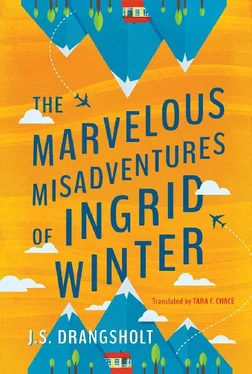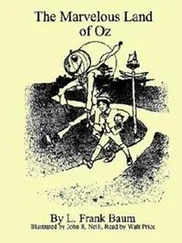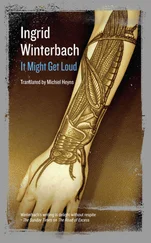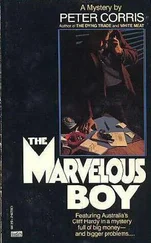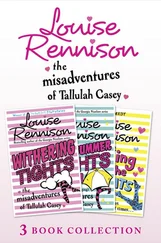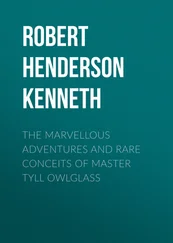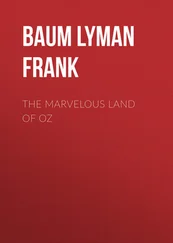I averted my gaze. I had the vague sense we had made some kind of misstep, a really big one. I thought about the chair. About the preschool-teacher program. About the unemployment office. About the KGB. About financial ruin. About how extremely lonely I would be in a basement apartment way outside of town.
And I smiled my broadest smile and opened my mouth right as a fourth secretary walked in, carrying three books that she placed on the table in front of us. The dean stood up and placed a business card on top of each of the books. The card said, “Vladimir Vesper. Dean of Faculty.”
“Thank you,” we said, making do with nodding to each person in the room since none of us had a business card ready to offer in return. “Thank you.”
The dean walked over to a glass cabinet and took out a small picture that he brought over to the table and placed before us. It was an icon and seemed to be a depiction of Jesus holding his hands up in blessing. He was surrounded by a golden halo with the inscription Ὁ ὬΝ in Greek. I am that I am. God’s words from the burning bush.
“What a beautiful icon,” I said, but the dean brushed me aside.
“Friends,” he said, gesturing toward the icon, “are to be treasured. Russia has never been to war with Norway. Norway has never been to war with Russia. Friendship.”
He put his hand on his heart as he enunciated the last word and looked at us with his unreadable eyes, which didn’t look the least bit sleepy anymore.
“Friendship,” Ingvill repeated mechanically.
“Magnificent,” mumbled Peter, picking up the icon from the table. “Absolutely magnificent. Reminds me of Rublev himself.”
Only then did I realize that Ivan had stood up. He was standing by the door gesturing for us to join him. I leapt up and walked over to the dean, who kissed me on both cheeks and after that gave a giggling Ingvill the same treatment. Since we’d been talking about friendship so much, I decided to shake hands with all the secretaries as well. We were up to six of them now, and all of them smiled and nodded, especially pleased.
The last in line was Peter, who for his part was dragging his feet and hanging his head and looking quite sad, shuffling along with a limp plastic bag in his hand. Even his tweed suit looked sad, and I noticed there was a big brown stain on one lapel.
“Magnificent,” he repeated mechanically as he took the dean’s hand, “absolutely magnificent. Eternal friendship.”
Back at the hotel I finally managed to get online, and the very first thing I accessed was an e-mail from the PTA president. “Dear Ingrid,” she wrote, “please forward me the official municipal response on the right of children to have their shoes tied at school ASAP! Please also prepare a ten-minute summary for the next meeting. This will be one of the main items on the agenda.”
I wondered if she actually thought this was one of the leading issues of the day, something our generation would be judged on after we were gone. The committee had always suffered from an inferiority complex compared to the legendary PTA that had stood on the barricades seven years ago to procure a new art room for the school. Everyone knew that feat couldn’t be topped, but standing up for children’s rights… maybe this was the closest you could get.
The next message was from the violin teacher, who wondered why neither Ebba nor Jenny had shown up for their lessons the last two weeks. “It makes our work that much more difficult when these little instrumentalists don’t show up as agreed. Please review the home/school relationship bylaws (attached).”
Then there was one with “The Hobbit” in the subject line, but I scrolled right past that, moving on to an e-mail from Frank that had been sent to Ingvill, Peter, and me. “Call me,” it said, “as soon as possible. We may have miscalculated our strategy.”
This was followed by one from the chair: “Because of an unfortunate development related to the course revision, I’ve been forced to convene a departmental meeting that will also be attended by the ergonomics, occupational safety, and regulatory compliance officer, the dean of College of Arts and Sciences, and a representative from the university’s Office of the General Counsel. Until that time, I would appreciate not receiving any anonymous letters in my mail slot.”
I yanked on my hair and hit “Reply All” to Frank’s e-mail: “Do NOT send anonymous letters to the chair! And I’m not part of any strategy!”
The response from Peter arrived promptly: “We’re all part of the strategy, Ms. Bad Cop. ;-)”
I tried calling Bjørnar, but he didn’t answer, so I sent a quick e-mail instead: “Things are OK here. Still alive. Glad Norway never went to war with Russia. How are you guys?”
Then I dialed the phone number for the Office of the City Clerk.
“Could I speak to whoever’s responsible for children’s rights?” I asked the person who answered the main phone line and was transferred to the Office of School, Culture, and Leisure Affairs, which was apparently extremely busy, because I was on hold for a long time listening to panpipes.
While I waited, I picked up an English-Russian newspaper I’d found in the lobby. There was a picture on the front page of a sinkhole that had appeared in Siberia. No one knew why it happened. The article didn’t make any attempt to explain it. No speculations.
I hung up the phone in the middle of one of Norway’s top hits from 1989 and looked out the window where the snow was still blowing around. Maybe some of the flakes would end up in Siberia. Some might even stray down into the sinkhole that had opened without anyone knowing why. Sinkhole. The word made me think of something, some memory, without my being able to quite put my finger on it.
I Googled “sinkhole in Siberia.” Articles from both American and British newspapers popped up. All of them agreed that the sinkhole was inexplicable, but they weren’t afraid to speculate. Some thought the crater was caused by a UFO that had landed in Siberia and was now lying hidden at the bottom, but most were of the opinion that the collapse stemmed from Soviet-era test drilling in the seventies. Apparently they had been feverishly searching for gas in Siberia back then and had big plans to extract it, but eventually the project had been back-burnered when several big holes opened up on the surface of the earth. They were all lying there like open wounds in the landscape, and most of them were still burning because of the methane gas pouring out.
I pictured those burning holes. Like big torches or lighthouses, not showing the way to anywhere other than destruction and death. Just like the bonfires of those people who rob shipwrecks. Could you see them all the way from space? Maybe that’s what had attracted the UFO here? Maybe that’s why it came?
And if we were being invaded from outer space, how was I going to get home? Bjørnar had a lot of wonderful qualities, but he knew pretty much nothing about how to save a family from bloodthirsty aliens who had depleted their own planet and were now hoping for a piece of ours. My brain started tingling and the squeezing feeling was back in my chest. I closed my eyes and tried to think happy thoughts.
I went down to the lobby, where Peter was sitting in the bar with a glass of beer in front of him.
“Hi,” I said. “Are you sitting here alone?”
“Actually, Ingvill’s here, too. She’s buying herself a glass of white wine. She suggested we have a drink before we go to the Hermitage.”
“The Hermitage?”
“Didn’t you know about that? Ivan sent her a text message to invite us. I figured she would have told you?”
“Nope, she didn’t.”
Читать дальше
